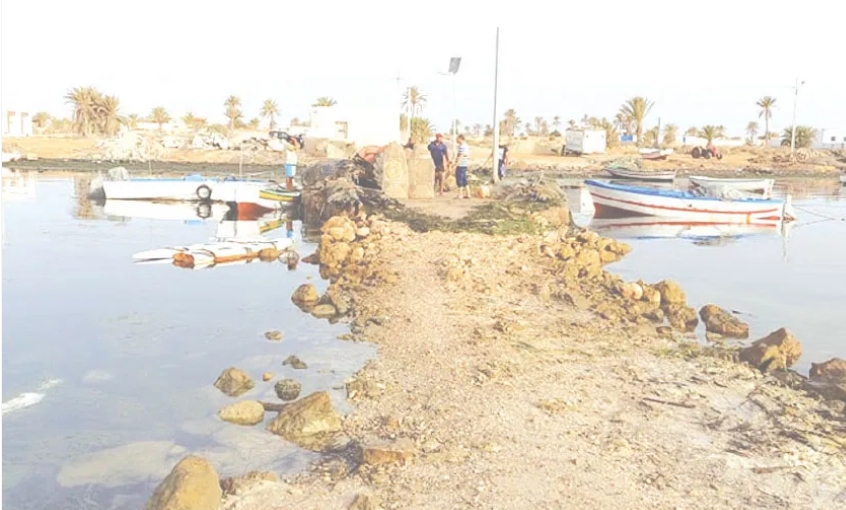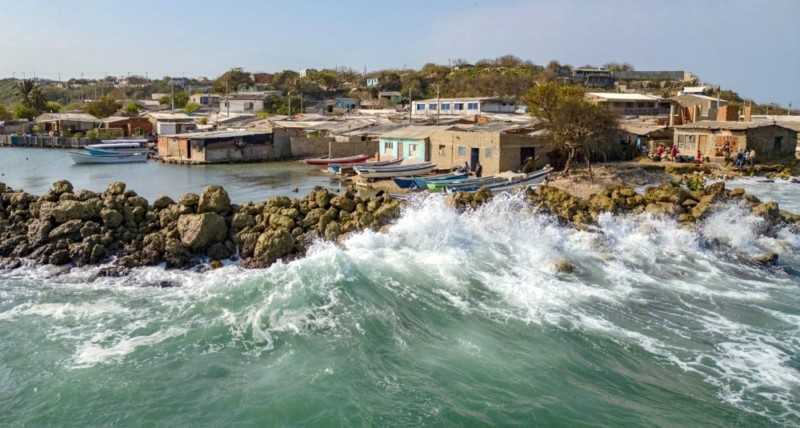Coastal towns like Hammamet, Bizerte, Sidi Bou Saïd and others are heavily affected by erosion. Rising sea levels are a phenomenon that threatens several countries.
Sea levels are rising due to global warming. This rise will accelerate more quickly than we thought. The melting of glaciers, a consequence of human activity which warms the earth, is becoming worrying.
Since 2002, each year, 150 billion tonnes of ice have disappeared, which is equivalent to a rise in sea level of around 0.3 millimeters per year. An unprecedented acceleration. Added to the melting of the ice is thermal expansion. With rising temperatures, water gains volume under the effect of heat and causes sea levels to rise.
Our country, one of the most vulnerable!
What about us? Tunisia is one of the countries most vulnerable to rising water levels. Tunisians have noticed that in recent years, temperatures have continued to rise. Winter is getting milder. Summer is getting hotter and hotter. Unfortunately, Tunisia is getting warmer, especially as it is experiencing acute water stress. While Hammamet, Bizerte, Sidi Bou Saïd and many other coastal towns are strongly affected by erosion, a phenomenon which endangers their already fragile infrastructure.
According to engineer Hamdi Hached, thermal expansion caused sea levels to rise on the Tunisian coast. “According to forecasts, in the next 25 years, Tunisia will lose around 250 km2 of its coastline. The Kerkennah Islands will lose 12.7% of their land. Imagine the equivalent of two thirds of the city of Tunis will disappear from the surface area of Tunisia by 2050, while an area equal to the city of Monastir will be flooded by 2100. The situation is catastrophic. explains Mr. Hached.
Coastal retreat has socio-economic impacts. There will be no more beaches. Thus, the seaside tourism model will be threatened. The economy of the Kerkennah archipelago based on fishing will also be affected. However, there are solutions, but they are too expensive and require great collaboration at the international level.
There are solutions, but…
To begin with, it is necessary to reduce CO2 emissions, since various studies and reports on climate change have shown that the effect of natural greenhouse gases is intensified, due to emissions generated by fossil fuels, namely the oil, natural gas and coal, as well as massive land exploitation and deforestation.
Such a solution seems very difficult to apply, since most countries have polluting industries. This is because the transition to a green or circular economy, capable of clean production, requires a lot of investment, especially for poor countries.




